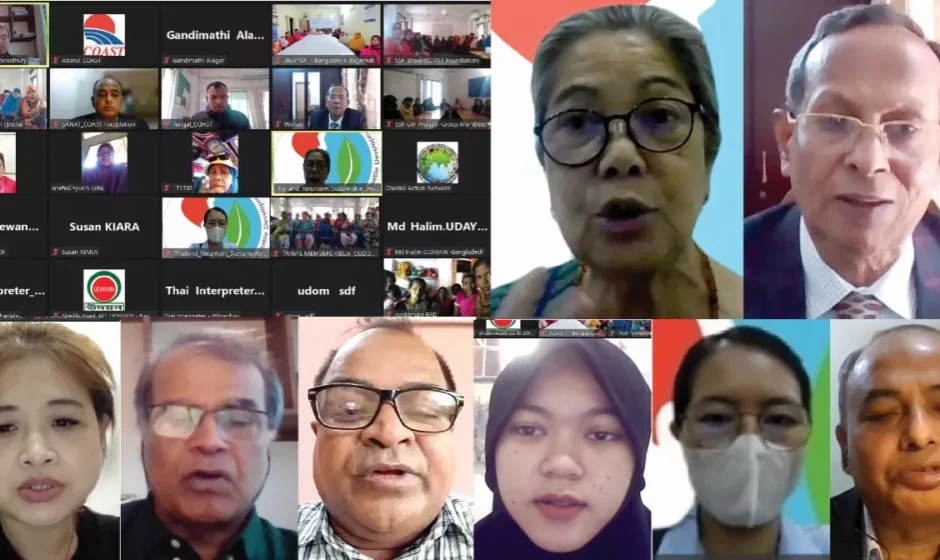The delicate balance of marine ecology and the future of small-scale fisheries hinge on one crucial factor: women’s empowerment. This powerful message resonated from a recent virtual regional dialogue, where experts from Bangladesh, India, Thailand, and Sri Lanka shed light on the critical role women play in these sectors and the urgent need to address their vulnerabilities.
Despite their active participation in every aspect of fish harvesting, processing, and marketing, women in small-scale fisheries often face stark realities. Limited access to resources, decision-making power, and economic independence leaves them marginalized and underappreciated. Their contributions to ownership of resources are frequently underestimated, further hindering their progress.
The dialogue, aptly titled “Gender Aspects of Small-Scale Fisheries: A Comparative Picture of Bangladesh,” brought together prominent voices like Dr. Abdul Wahab, Gandhi Mathi Algar, and Harman Kumara, along with inspiring fisherwomen like Supaporn Phanria and Khairayah Rahmaniya. They shared insights and experiences, painting a clear picture of the challenges faced and the transformative potential of gender equality.
A resounding consensus emerged: achieving sustainability in marine ecology and small-scale fisheries is impossible without ensuring gender equality. This demands a multi-pronged approach:
- Bridging the technological and educational gap: Providing women with access to training in new skills and technologies will level the playing field and empower them to participate more effectively.
- Combating societal biases: Eradicating harmful social norms like child marriage and promoting education for girls in fishing communities is crucial for long-term progress.
- Fostering economic independence: Enabling women to secure fair wages, access financial resources, and participate in decision-making processes will contribute to their economic empowerment and overall well-being.
- Strengthening social safety nets: Ensuring secure and dignified working conditions, including access to healthcare and childcare facilities, is essential for protecting women’s rights and health.
- Promoting regional collaboration: Sharing best practices, resources, and knowledge across geographical boundaries will pave the way for collective action and accelerated progress.
The voices of women fisherfolk themselves resonated strongly during the dialogue. They highlighted the barriers they face in accessing government services and resources, the stark wage disparities they endure, and the need for safe working environments. Their testimonies served as a stark reminder of the urgency of implementing tangible solutions.
The message is clear: women are not just stakeholders in the future of sustainable marine ecology and small-scale fisheries; they hold the key to unlocking it. By empowering them, we empower these vital sectors and pave the way for a thriving future for both the coastal communities and the ocean itself. This is not just a matter of equity; it is a strategic investment in the health of our planet and the well-being of generations to come.

